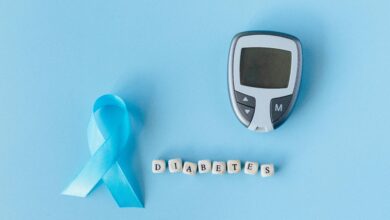The Ultimate Guide to Diabetes Meal Planning

Meal planning for diabetes: what is it?
Meal planning for diabetes involves coming up with a balanced diet that will assist you in controlling your blood sugar levels. It entails making meal choices that are high in whole grains, fruits, and vegetables and low in sugar, harmful fats, and carbs.
Diabetes is a chronic disease that affects how your body turns food into energy. There are two main types of diabetes: type 1 and type 2.
Type 1 diabetes is an autoimmune disease that causes your body to attack the cells in your pancreas that produce insulin.
Insulin is a hormone that helps your body use glucose for energy.
Type 2 diabetes is caused by a combination of factors, including genetics, lifestyle, and environmental factors. It occurs when your body becomes resistant to insulin or doesn’t make enough insulin.
The Importance of Nutrition
An essential component of managing diabetes is nutrition. A nutritious diet can assist you in:
- Control your blood sugar levels
- Maintain a healthy weight
- Lower your chance of developing diabetes-related problems such as renal disease, heart disease, and stroke.
- Feel better and have greater vitality.
What to Eat
If you have diabetes, it’s important to eat a healthy diet that is low in calories, fat, and sugar. You should also focus on eating plenty of fruits, vegetables, and whole grains. These foods are high in nutrients and fiber, which can help you feel full and satisfied.
- Fruits and vegetables are low in calories and fat and high in fiber. They are also a good source of vitamins, minerals, and antioxidants.
- Whole grains are a good source of fiber, which can help you feel full and satisfied. They are also a good source of vitamins, minerals, and antioxidants.
- Lean protein is a good source of protein without a lot of fat. Good sources of lean protein include chicken, fish, beans, and lentils.
- Low-fat dairy products are a good source of calcium, protein, and vitamin D. Good sources of low-fat dairy products include milk, yogurt, and cheese
Unlock Your Best Life Defeat Diabetes and Thrive with Personalized Health Strategieshttps://unikesh.com/unlock-your-best-life-defeat-diabetes-and-thrive-with-personalized-health-strategies/
What to Avoid
If you have diabetes, you should avoid foods that are high in calories, fat, and sugar. These foods can raise your blood sugar levels and make it harder to control your diabetes
- High-calorie foods include processed foods, sugary drinks, and fast food.
- High-fat foods include processed foods, fried foods, and fatty meats.
- High-sugar foods include sugary drinks, candy, and desserts.
Conclusion
Nutrition is an important part of managing diabetes. By eating a healthy diet, you can help control your blood sugar levels, maintain a healthy weight, and reduce your risk of complications from diabetes.
Remember : When you first start meal planning for diabetes, bear the following in mind:
- Collaborate with a qualified dietician or your physician. They can assist you in developing a customized strategy that fits your unique requirements and objectives.
Make sensible objectives. Try not to make all the changes at once. - Make minor adjustments at first, then work your way up from there.
- Choose an approach you can stick with among the numerous that are accessible.
- A treat now and again is acceptable, but don’t allow it to get in the way of your goals.
———————————————————————————————————–
Sources :
- American Diabetes Association. “Nutrition for Diabetes.”
- Centers for Disease Control and Prevention. “Managing Diabetes with a Healthy Diet.”
- The National Institute of Diabetes and Digestive and Kidney Diseases
- The Academy of Nutrition and Dietetics

